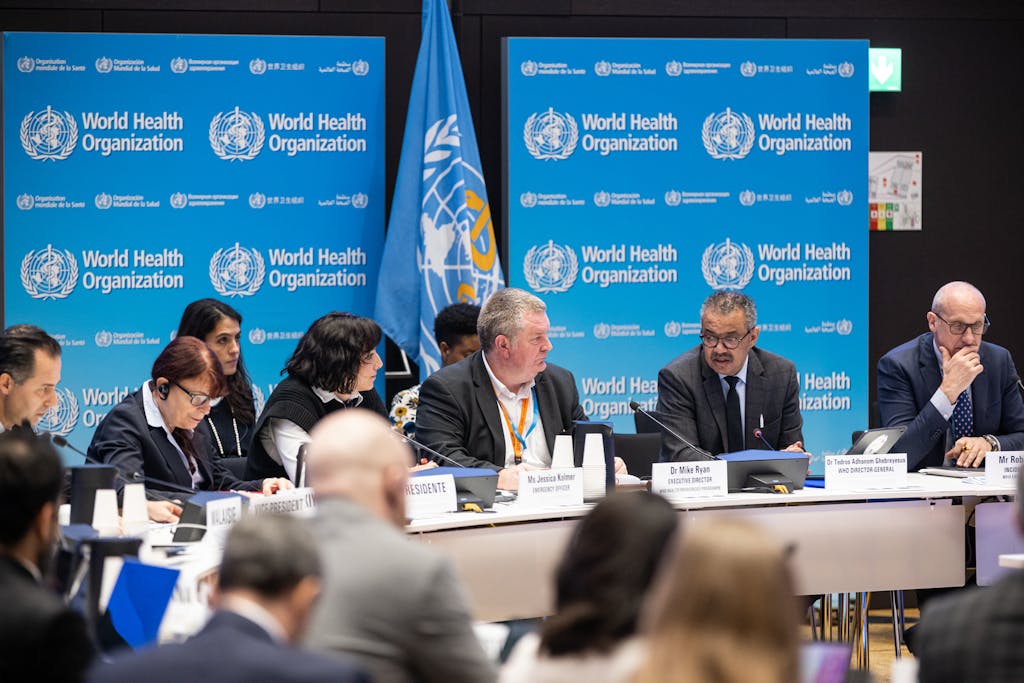In the tapestry of global health governance, the World Health Organization (WHO) emerges as an unwavering sentinel, established in 1948 with an unyielding commitment to protect and elevate the health of individuals world wide.WHO spearheads diverse health initiatives, engages in research, extends technical support, and establishes benchmarks for international health, making its membership and global health impact a compelling subject of exploration.
Membership in WHO
Based on the information available up to September 2021, the World Health Organization consisted of 194 member states, solidifying its status as one of the most comprehensive and all-encompassing international entities globally. Membership remains accessible to any sovereign nation willing to adhere to the WHO Constitution and collaborate with the organization. The procedure for joining involves the submission of an application and subsequent approval by the World Health Assembly, which serves as WHO’s highest decision-making authority.
WHO’s commitment to global health shines through in its continuous expansion of member states, giving each nation a vital role in shaping global health policies and tapping into the invaluable expertise and resources it provides.
Observer Status
Apart from its member states, the World Health Organization also grants observer status to certain territories, entities, and non-sovereign states. Observer status allows these entities to participate in WHO meetings and activities but without voting rights. These observers can contribute valuable insights and expertise to WHO’s work while being informed about global health initiatives.

The Role of WHO in Global Health
The WHO assumes a pivotal role in tackling worldwide healthcare issues, with several of its essential functions encompassing
Disease Surveillance and Monitoring: WHO monitors disease outbreaks and conducts research to better understand health trends worldwide. This information helps member states prepare and respond to health emergencies effectively.
Health Policy and Guidance: The organization provides guidance and recommendations on various health issues, such as vaccination, nutrition, and disease prevention. These guidelines help member states create effective health policies.
Global health crises demand WHO’s unwavering commitment to emergency response, reinforcing its pivotal role in safeguarding our well-being during pandemics and natural disasters.
Promoting global well-being: Our mission revolves around enhancing the resilience and capacity of healthcare systems within member states to ensure the delivery of vital services to their citizens.
These regulations help prevent the international spread of diseases and ensure a coordinated response.

Impact of WHO’s Work
The World Health Organization’s work has a profound impact on global health. Some notable achievements and contributions include:
Smallpox Eradication: Spearheaded by the WHO, the worldwide campaign to eliminate smallpox culminated in its official eradication in 1980—an extraordinary milestone in the annals of public health.
Poliomyelitis Eradication: Through collaborative efforts with various organizations, the WHO has made substantial headway in eradicating polio. Today, the disease persists as endemic in only a handful of nations, owing to widespread vaccination initiatives.
Control of Epidemics: WHO’s rapid response to disease outbreaks, such as Ebola and COVID-19, has helped contain these epidemics and save lives.
Enhancing Maternal and Pediatric Well-being: WHO’s endeavors have significantly enhanced the well-being of mothers and children on a global scale, leading to a substantial decline in maternal and child mortality rates.
Promoting Access to Vital Pharmaceuticals: The institution strives to guarantee the accessibility and affordability of crucial medications, with a special focus on underprivileged nations.
Conclusion
The World Health Organization’s unswerving dedication to worldwide well-being, boasting a consortium of 194 nations, exemplifies its resolute resolve to nurture and safeguard global health, demonstrating its steadfast commitment to tackling global health hurdles through cooperative initiatives. WHO’s influence stretches far beyond its member states, as it actively collaborates with observer entities, serving as a linchpin in shaping international health policies, responding to health crises, and propelling forward research and development initiatives. While my knowledge is grounded in information available until September 2021, the World Health Organization‘s enduring impact and contributions to global health remain dynamic, persistently adapting to novel challenges and prospects.
Read More:- Calendula Flower: A Flowing Plant Aiding In Restoring Skin Health!
Read More:-Exploring the Multifaceted World of Tea: Unearthing Its Unexpected Effects
